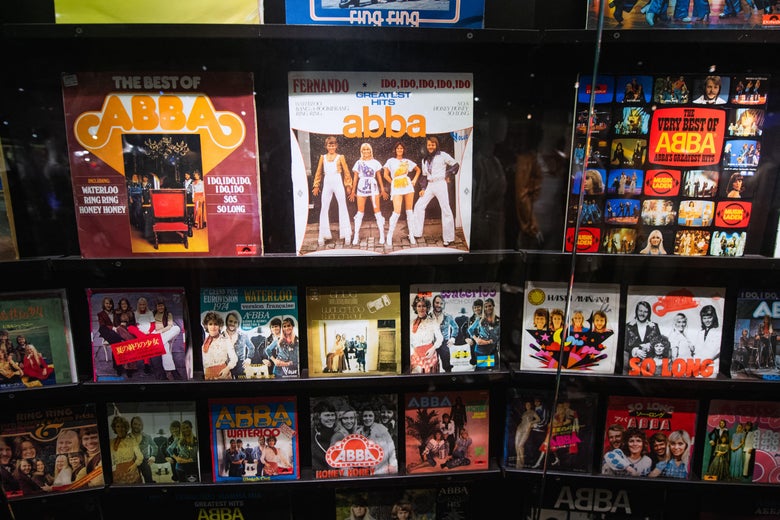In the past few years, as ABBA hinted at and then confirmed a return, capped this week by the release of the new album Voyage, one wondered what the band had to gain from it.
As successful as it was, ABBA’s whitest-of-white Europop was scorned by the anglo-American rock establishment and counterculture alike in their heyday—the Village Voice’s Robert Christgau famously wrote in 1979, “We have met the enemy, and it is them.” But ABBA’s turnaround to reclamation came at a record speed, as punks and gay clubbers alike, spurred on by that mainstream contempt, embraced the Swedish quartet’s paradoxical status as blockbuster underdogs.
Meanwhile, Swedish producers like Max Martin were remaking global pop in ABBA’s image, evolving the group’s studio virtuosity and “melodic math” with digital tools, to the benefit of Backstreet Boys, Britney Spears, and, into the late-aughts and beyond, Katy Perry, Taylor Swift, Ariana Grande, the Weeknd, and countless others.
What more can Voyage possibly hope to add to this landscape? In part, this album is a justification for the group’s planned reunion concerts next year in a custom-built London venue, where they’ll appear in holographic form as “ABBAtars;” it suits ABBA’s second-language lyrical legacy that nobody seems to have pointed out that this sounds not only like “avatars” but like “abattoirs,” a little too fitting for the not-quite-liveness of the exercise.
Unlike most band reunions, ABBA’s motivation can’t be because the members need the money, money, money.
And that’s followed by a squirm-inducingly kitschy attempt at an erotic Christmas song, “Little Things.” Placing the record’s two worst tunes so high in the 10-song track list will defeat some well-meaning listeners.
It opens with an anguished tone reminiscent of “The Winner Takes It All,” as a woman nervously prepares to ring her ex’s doorbell and ask to be taken back, succeeded by a climax of near-“Dancing Queen” disco-riffic proportions when he does.
“I Can Be That Woman” might, from the title down, find a woman agonizing over her marital mistakes more than the man’s.
The penultimate track, “No Doubt About It,” again finds the ABBA women singing “I take the blame”—not to mention, in their charmingly askew vernacular, “But, hey, I take the rap/ This one’s my mishap.” Yet as queer audiences have always noticed, the style and sound through which Agnetha and Frida’s voices are produced and blended and elevated into beyond-the-everyday realms entices almost any listener into identifying with the singers’ sentiments regardless of gender.
“Bumblebee,” with “Fernando”-ish pan flute and faux-Spanish tune , is a winsome environmentalist tribute to the threatened pollinators: “It’s quite absurd, this summer morning/ To think we could be trapped/ Inside a world where all is changing/ Too fast for bumblebees to adapt.” From any other band, this would feel too twee to bear, but I am nothing but endeared to the septuagenarians of ABBA for this grandma-ish take on eco-worries.
I don’t need to grant any such dispensation to enjoy Voyage’s closing political anthem.
There are a lot of songwriters I might have expected to capture the hopelessness of the ideological carnival of 2021, in which even the most elusive abstract value comes loaded with weights it cannot bear.
